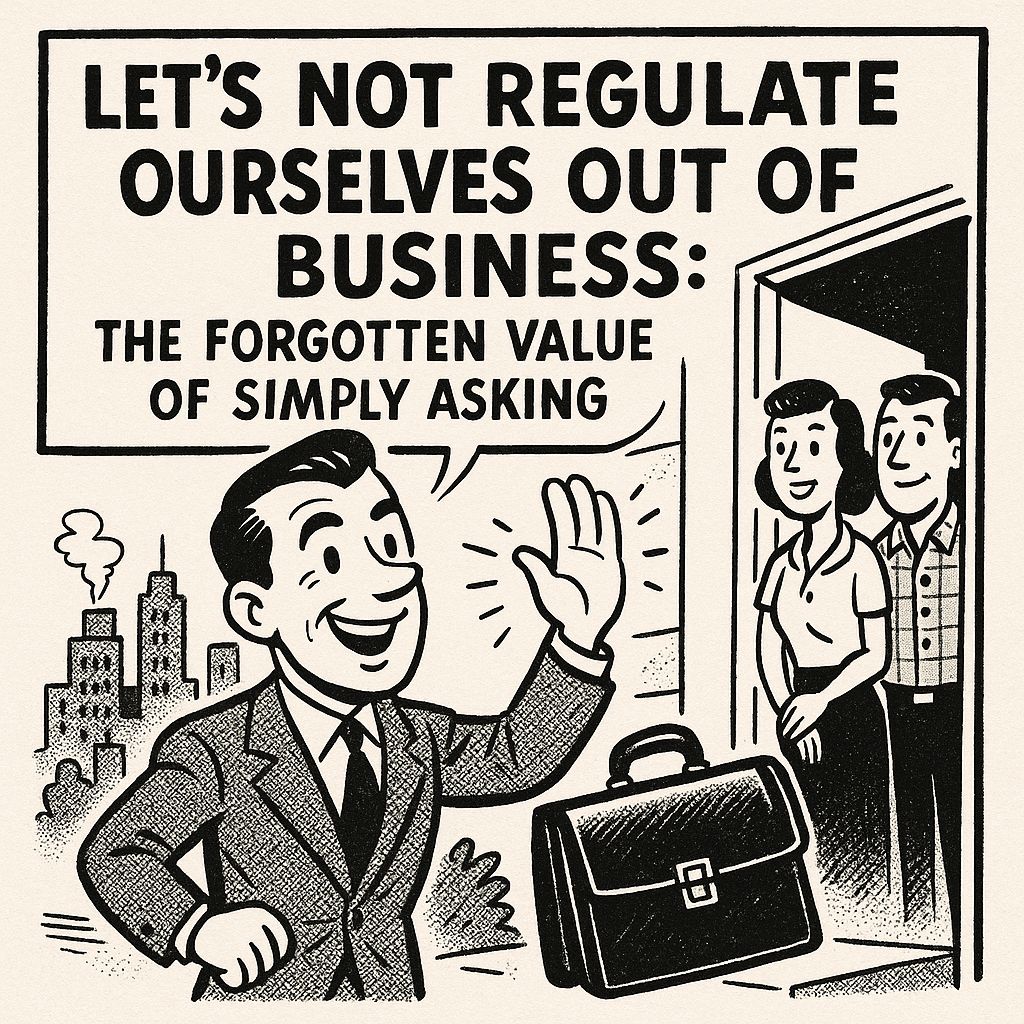In an era when nearly every product we use is surrounded by slick branding and algorithmic advertising, we’ve forgotten something simple and essential about business: sometimes, you just have to ask.
For generations, that’s how most businesses grew. Not with glossy ads or influencer campaigns, but with someone picking up the phone, walking into a store, or knocking on a door and saying, “Here’s what I offer—can I help you?”
Today, that kind of honest outreach has become almost taboo. Laws like the Telephone Consumer Protection Act (TCPA), a growing thicket of telemarketing regulations, and newer messaging restrictions like 10DLC have made the very act of contacting a potential customer feel like trespassing. Instead of being seen as a fair and legitimate way to earn business, direct outreach is now lumped in with spam and scams—often punished more harshly than the actual bad actors these laws were meant to stop.
And it’s not just a legal headache. This trend is shaping the entire economy in quiet but powerful ways.
Advertising has become the safe, accepted way to market—so long as you can afford it. Big companies can dump millions into ads that follow us across the internet, onto our TVs, and into our mailboxes. They can track behavior, mine data, and fine-tune every message with machine learning. That kind of reach is powerful—but it also comes with a price tag that’s out of reach for many small businesses.
If you’re a solo operator, a local roofer, a new startup, or a service provider with more hustle than budget, your best and sometimes only option is to reach out directly. Maybe you heard about someone who needs a solution you offer. Maybe you want to introduce your business to new residents in the area. Maybe you just want to start a conversation.
But in today’s regulatory climate, that’s a gamble. The TCPA and related rules were originally designed to curb robocalls and unwanted faxes—but they’ve since evolved into a legal minefield where even a single well-intended call or text could result in thousands of dollars in penalties. And while massive corporations have legal teams and compliance departments to navigate this, small businesses don’t. A single lawsuit can end a company before it ever gets off the ground.
The irony is that most people aren’t really bothered by legitimate outreach. What they dislike are scammy, deceptive, or abusive practices—and rightfully so. But instead of using enforcement to target the few who actually harass consumers, we’ve built a blanket system that treats all outreach with suspicion. The message is clear: unless you’re paying Google, Facebook, or Verizon for access to eyeballs, don’t reach out at all.
This isn’t just unfair—it’s economically damaging. It tilts the playing field heavily in favor of entrenched players and leaves little room for newcomers to compete. It cuts off grassroots growth, stifles innovation, and puts yet another barrier between ordinary people and entrepreneurship. In the name of consumer protection, we’ve made it harder for the very businesses that power our communities to survive.
It doesn’t have to be this way. We can protect consumers without strangling small business. We can set reasonable limits on frequency without banning the act of asking altogether. There’s a difference between being annoying and being illegal—and we’ve blurred that line too far in the wrong direction.
If we believe in economic freedom and a marketplace of ideas, then we need to treat direct solicitation as a valid, protected part of commerce—not a loophole to be closed. Because at the end of the day, advertising and soliciting are two sides of the same coin. One casts a wide net; the other starts a conversation. We need both.
We should be careful not to legislate ourselves into a world where only the loudest voices—backed by the biggest wallets—get heard. There is dignity in the ask, in the pitch, in the honest effort to earn business by offering value. That’s not spam. That’s entrepreneurship. And it deserves our protection.
